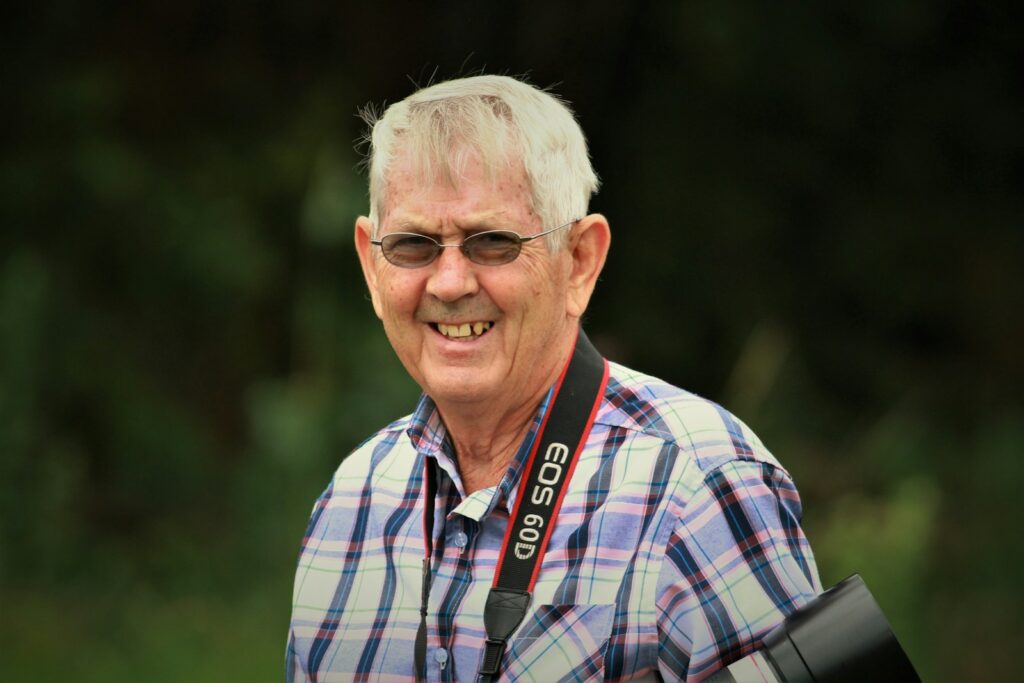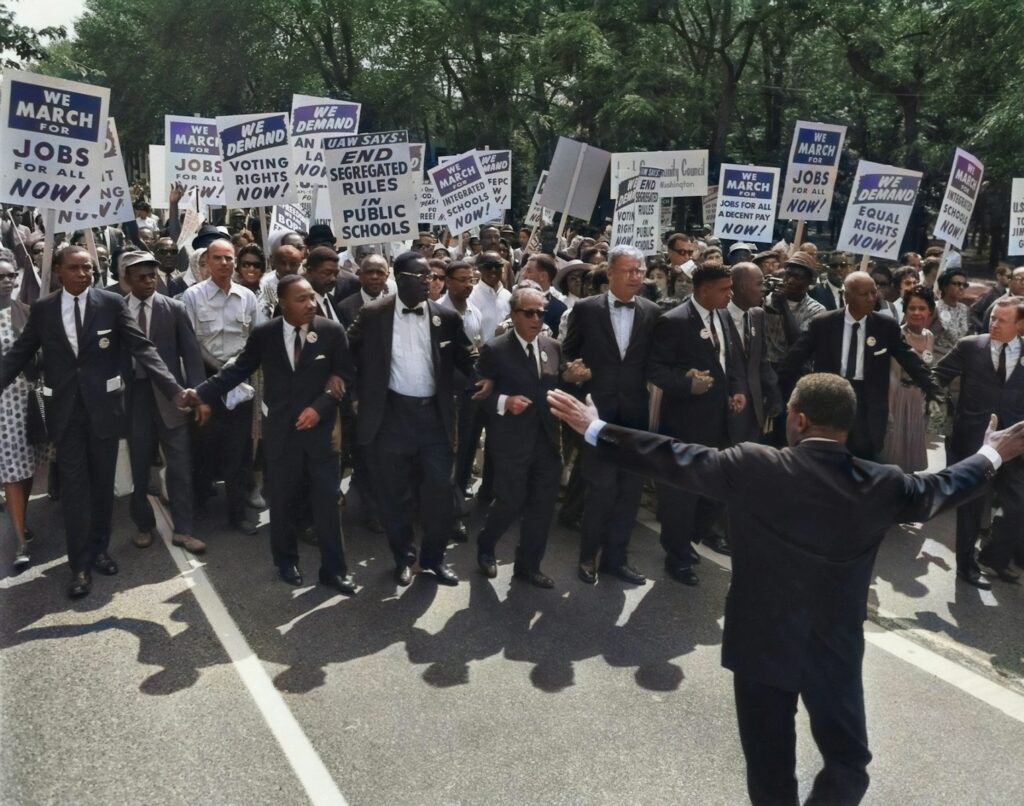
The recent passing of John Burton at the age of 92 marks the end of an era in California politics. A figure of immense influence for decades, Burton was more than just a politician; he was a force of nature, known for his unvarnished honesty, a rhetorical style peppered with profanity, and an unwavering commitment to the less fortunate. His journey, from a promising early career through a debilitating struggle with addiction, and culminating in a remarkable political comeback, serves as a compelling narrative of resilience and dedication to public service. His life’s work helped to solidify California as a bastion of Democratic values, leaving an indelible mark on its legislative chambers and the lives of countless citizens.
Burton’s impact transcended conventional political boundaries. He cultivated a reputation as a ‘liberal warrior,’ a title that aptly captured his passionate advocacy and often confrontational approach to politics. Yet, beneath the gruff exterior and direct language lay a deep-seated compassion that drove his policy decisions and shaped his interactions. His story is one of profound personal challenge intertwined with significant public achievement, offering a unique lens through which to understand the evolution of California’s political landscape and the enduring power of conviction.
His passing, announced by his family after a fall about two weeks prior, elicited a flood of tributes from the state’s most prominent leaders. Governor Gavin Newsom praised him as a ‘champion for the poor, the bullied, the disabled, and forgotten Californians,’ highlighting a legacy built on fierce advocacy and an unparalleled determination. This article delves into the formative aspects of Burton’s career, his personal battles, and the initial phase of his extraordinary comeback, charting the course of a man who defied expectations and reshaped the political discourse in California.

1. **Early Life and Roots of Compassion**John Lowell Burton’s story began far from the hallowed halls of power, in Cincinnati on December 15, 1932. His family’s move to San Francisco in 1941, driven by his father Thomas’s new career as a doctor after starting medical school at 36, profoundly influenced young John. Dr. Burton often treated poor clients free of charge, instilling an early understanding of service and empathy in his son. His mother, Mildred (Leonard) Burton, was a dedicated fund-raiser for the Catholic Church before becoming a legal secretary, further shaping a home environment steeped in community engagement and care.
Burton’s formative years in San Francisco were characterized by a blend of academic pursuit and a vibrant, unconventional social life. He earned a bachelor’s degree in social sciences from San Francisco State University in 1954, where he also excelled as the starting point guard on the basketball team in his senior year. Immediately after, he volunteered for service in the Army, stationed in Vienna until his discharge in 1956. His memories of Vienna included visits to the Soviet zone’s red-light district, indicative of a personality that sought experience beyond the ordinary.
Upon returning to San Francisco, Burton attended law school at the University of San Francisco, simultaneously embracing a diverse array of jobs. He worked as a bookie and tended bar at Bimbo’s 365, a beloved nightclub and music venue. These experiences, as he chronicled in his memoir, “I Yell Because I Care: The Passion and Politics of John Burton, California’s Liberal Warrior,” provided him with invaluable insights into human nature. He wrote, “I ran with strippers, club owners, Beatniks, hustlers, gamblers, entertainers, and other assorted characters. You can learn a lot about people in those circles,” underscoring the rich tapestry of life experiences that would inform his political perspective.
Read more about: Katharine, Duchess of Kent: Remembering a Royal Who Embodied Compassion, From Wimbledon’s Green Courts to Hull’s Classrooms

2. **Entry into California Politics and Early Stances**Burton’s entry into politics was closely tied to his older brother, Phillip, who was elected to the State Assembly in 1956 and rapidly ascended in Democratic politics. John followed suit, winning election to the State Assembly in 1964, the same year he forged a lifelong friendship with Willie Brown, his college buddy from San Francisco State. This initial legislative period saw Burton emerge as a staunch advocate for civil rights, opposing the death penalty and becoming an antiwar activist, notably protesting U.S. involvement in Vietnam in October 1963 when the troop presence was still relatively small.
During his first stint in the Assembly, Burton quickly demonstrated his legislative prowess and commitment to progressive causes. One of his early achievements included orchestrating the only successful override of a veto during Ronald Reagan’s governorship. This significant legislative victory concerned a bill aimed at keeping state mental hospitals open, a clear early indicator of his dedication to protecting vulnerable populations and challenging established power. His willingness to take on powerful figures, even a governor, set a precedent for his future political style.
He also took a lead role in Reagan’s 1971 welfare overhaul, where he successfully pushed for annual cost-of-living adjustments for welfare recipients. This advocacy for sustained support for the poor would become a recurring theme throughout his career. His early actions cemented his reputation as a “proudly liberal and pro-labor lawmaker,” laying the groundwork for his extensive influence over California politics and policy on diverse topics ranging from welfare to auto emissions and guns.
Read more about: Mechanics Explain: Why 12 ‘Game-Changing’ EVs Are Stalling in the U.S. Market

3. **Congressional Tenure and Personal Struggles**After his impactful time in the State Assembly, John Burton was elected to the U.S. House of Representatives in 1974, serving four terms until 1983. In Congress, he continued to champion liberal causes, pushing legislation protecting wilderness areas in the Golden Gate National Recreation Area and condemning apartheid in South Africa. However, this period, particularly towards its end, was marked by a profound personal crisis that overshadowed his political work. His casual drug use escalated dramatically after the assassination of his close friend, San Francisco Mayor George Moscone, in November 1978.
Burton vividly described in his memoir how, after Moscone’s assassination, his substance abuse “went bang-zoom.” He began missing work, with his absenteeism on votes soaring to 75 percent by 1982. He was not only freebasing cocaine but also spending days alone in his home huffing nitrous oxide. His disheveled appearance, which he wryly noted “was like my normal look,” became a sign of deeper distress, and his tendency to “rant” on the House floor was amplified by his deteriorating condition. He realized he was profoundly miserable in Washington and his career, by all outward appearances, seemed to be collapsing.
Confronting the severity of his addiction, Burton made the difficult decision not to seek a fifth term in 1982, openly citing depression and dependence on crack cocaine and nitrous oxide. This brave admission and subsequent withdrawal from federal politics marked a critical turning point. He moved back to San Francisco, entered a rehabilitation facility in Arizona, and embarked on the challenging path to sobriety. This period of personal reckoning, though deeply private, became a testament to his strength and laid the foundation for an unprecedented political comeback.
Read more about: Unpacking the Complex Life and Enduring Career of Pete Davidson: From SNL Breakthrough to Public Scrutiny
4. **The “Incredible Comeback”: From Rehab to Re-election**Following his decision to step down from Congress in 1982 and commit to sobriety, John Burton began to rebuild his life away from the immediate glare of national politics. He successfully completed rehabilitation and stayed clean, a commitment he maintained for the rest of his life. During this period, he established a law practice in San Francisco, demonstrating his ability to function effectively and contribute to his community outside the legislative arena. This time of personal healing and professional re-establishment was crucial in preparing him for his eventual return to public life.
His comeback began in 1988, more than two decades after his initial election, when he successfully returned to the California State Assembly through a special election for an open seat. This re-entry into the state legislature was nothing short of extraordinary, particularly given the public nature of his previous struggles. It signaled a profound personal victory and a renewed dedication to public service. His daughter, Kimiko Burton, later described this return as an “incredible comeback,” emphasizing the magnitude of his achievement in overcoming addiction and reclaiming his political standing.
Back in Sacramento, he reunited with his old friend, Willie Brown, who by then had become the powerful Assembly Speaker. Burton quickly re-established himself as a close ally and influential figure within the legislature. His return was met with a mix of wonder and admiration, as The Times reported in 1998, with “Old Capitol hands greet[ing] word of his elevation with roughly the wonder that would attend the appointment of Hunter S. Thompson as dean of the Columbia journalism school.” This period marked the beginning of his most prominent and impactful years in California politics, proving that personal struggles did not have to spell the end of a public career.

5. **Legislative Acumen and The Foie Gras Ban**John Burton was renowned for his exceptional “expertise in legislative legerdemain,” a skill that allowed him to navigate complex political landscapes and achieve his policy goals. He possessed a unique disposition, taking genuine pleasure in the intricacies of political negotiating, often employing a rhetorical style that framed liberal commitments as fundamental matters of respect and compassion. This blend of strategic cunning and heartfelt conviction made him an formidable force in the Capitol, enabling him to significantly shape California’s progressive agenda.0
Perhaps no single legislative battle better encapsulates Burton’s distinctive approach than his relentless campaign to ban foie gras statewide. Appalled by the practice of force-feeding ducks and geese to enlarge their livers, he made it one of his final legislative priorities. In 2012, he drafted a bill that faced considerable opposition from restaurant owners and agricultural interests. His response to opponents, as quoted by The New York Times, was characteristic of his direct and often confrontational style: “Why don’t you tell those chefs to have a duck cram a lot of food down their gullets and see how they like it?”
The bill passed the Senate by a single vote, a testament to his persuasive power and legislative skill. In a letter to Governor Arnold Schwarzenegger, urging him to sign the bill despite opposition from some prominent chefs, Burton included a piece of his signature “Burtonesque doggerel”: “Save Donald Duck. F— Wolfgang Puck.” Schwarzenegger ultimately signed the bill, and humorously sent Burton a photo of himself and Burton looking at the bottom of the governor’s shoe, with a note: “I got duck liver on my shoe!” This episode not only showcased his legislative determination but also his ability to engage with opponents on a surprisingly personal and often amusing level, all while pushing through significant animal welfare legislation.

6. **Championing the Underdog: Welfare and Foster Care**At the core of John Burton’s political philosophy was an unshakeable belief that “government’s there to help the people who can’t help themselves.” This guiding principle underpinned his legislative efforts across decades, consistently focusing on those at the margins of society. He often reiterated that “there’s a lot of people that can’t help themselves,” demonstrating a profound commitment to using his position of power to uplift the vulnerable. His empathy was not just rhetorical; it translated into tangible policy achievements.
Among the bills he was proudest of, as stated in his memoir, were those that provided crucial support to underserved populations. He championed legislation that helped farmworkers unionize, offering them a stronger voice and better working conditions. He also authored bills that expanded special education services for autistic children, ensuring they received the tailored support necessary for their development. Furthermore, he consistently fought to raise benefits for the poor, recognizing the fundamental need for a safety net that could genuinely alleviate hardship. These legislative victories highlighted his unwavering focus on social justice and equity.
In his later years, Burton’s dedication to the underdog found a new, powerful outlet through the John Burton Advocates for Youth, a nonprofit he founded. This organization was dedicated to mentoring foster youths and advocating for vital policy changes, driven by his exasperation with the lack of resources for those aging out of the foster care system. He passionately questioned, “Emancipated from what? And into what? Into not being able to have a roof over their heads?” Through this foundation, he successfully advocated for over 50 legislative reforms, including financial aid for college and extending foster care for some from age 18 to 21, leaving a legacy of direct, impactful assistance for thousands of young lives.

7. **A Unique Political Style: Candor and Confrontation**John Burton cultivated a political persona that was as distinctive as it was effective. He gained a widespread reputation as a “straight talker,” a characteristic deeply tied to his “zestful use of profanity” and his openhearted discussion of overcoming drug addiction. Unlike many politicians who meticulously craft their public image, Burton’s approach was refreshingly authentic, often rumpled, and always direct. An L.A. Times writer contrasted him with the dapper Willie Brown, describing Burton as “performance art — rumpled, often rude, too fidgety to sit in long policy meetings.”
His appearance was as unconventional as his language. He wore his gray hair shaggy, favored guayabera shirts over formal attire, and wore ties reluctantly. His office wall even held a framed jock strap embroidered with the words “I am a Burton supporter,” a clear indicator of his irreverent spirit. He was known to “rant” on the House floor, but as he wrote in his memoir, “But hell, I’d been ranting on legislative floors as long as I’d been an officeholder,” suggesting that this was an intrinsic part of his passionate engagement with issues.
Burton was not above using humor or even insults to make a point, once disparaging Governor Pete Wilson, a Marine Corps veteran, as “the little Marine” for his efforts to limit welfare. He also famously mocked Governor Ronald Reagan’s quip about him fearing squirrels by trying to feed squirrels a copy of some Reagan-backed legislation in Capitol Park. This candor, though sometimes confrontational, was often disarming. He himself noted, “There’s some benefit to people thinking you’re nuts,” acknowledging the strategic advantage of his eccentric and direct style in navigating the complex world of politics, ultimately building trust through his sheer authenticity and commitment to his beliefs.
8. **The Architect of Democratic Dominance**John Burton’s influence extended far beyond his individual legislative achievements; he was a pivotal architect in building and sustaining a powerful Democratic political machine in California. This formidable network, which also included his brother Phillip and long-time friend Willie Brown, fundamentally reshaped the state’s political landscape. Under their guidance, California solidified its identity as a Democratic stronghold, a legacy that continues to define its legislative and electoral outcomes today.
This political organization was renowned for its strategic acumen and its ability to identify and nurture future leaders. The context highlights that this group “picked or mentored” a remarkable roster of state figures. It was a testament to their foresight and influence that individuals who would become national political titans, such as Nancy Pelosi, Barbara Boxer, and Kamala Harris, were either direct beneficiaries of this network or closely associated with it, ensuring a continuous stream of progressive leadership.
Phillip Burton, John’s older brother, played an instrumental role in the early days, demonstrating a similar knack for political maneuvering, including an ambitious effort to redraw congressional districts to favor Democrats. While John often operated with a distinct, rumpled style, his strategic mind was equally sharp, contributing significantly to the collective power of this political family. Their combined efforts laid the groundwork for the Democratic Party’s enduring strength, making them, as one source put it, integral to the “organization that dominated Democratic politics in San Francisco and the state starting in the 1960s.”
Read more about: Unmasking the Pedestal: 15 Revered Historical Figures Whose Dark Sides Will Shock You

9. **Mentoring a Generation of Leaders**Beyond the structural aspects of party building, John Burton cultivated personal relationships that proved instrumental in launching and bolstering the careers of numerous prominent figures, particularly women. His direct involvement in the ascent of some of California’s most powerful politicians underscored his role as a mentor and strategist. This commitment to fostering new talent was a hallmark of his approach, ensuring that his progressive vision would be carried forward by a new generation.
Perhaps most notably, Burton was the campaign chairman for Nancy Pelosi, who succeeded his brother Phillip’s widow, Sala Burton, in Congress. Sala, as she was dying, specifically asked John to help Pelosi, a request he fulfilled using “all his connections” to ensure her victory in the 1987 congressional race. This foundational support from Burton was crucial for Pelosi’s entry into national politics, paving the way for her eventual historic tenure as Speaker of the House, a relationship Pelosi herself acknowledged, calling him “one of the most outspoken, ferocious, and unyielding champions our nation has every known.”
His mentorship extended to other influential women as well. Barbara Boxer worked for John Burton during his time in Congress, later succeeding him in 1982 before winning a U.S. Senate seat a decade later. Similarly, while Kamala Harris’s promotion to the Senate was facilitated by Willie Brown after Boxer’s retirement, she was part of the broader network that Burton helped establish and empower. Even current Governor Gavin Newsom benefited from Burton’s patronage; Burton was a friend of Newsom’s father and recommended Newsom for his first political appointment, to the city Parking and Traffic Commission, given to him by then-Mayor Willie Brown in 1996.
This sustained investment in cultivating leaders, many of whom were women, was a point of pride for Burton. In his memoir, he reflected on his success in “bolstering the careers of powerful women” and expressed his support for “our evolution toward a more gender-balanced culture.” This commitment to diversity in leadership further cemented his legacy, demonstrating his belief that a robust democracy required varied voices and perspectives at the highest levels of power.
Read more about: Ozzie Rodriguez, La MaMa’s Visionary Archivist and Artistic Force, Dies at 81: An In-Depth Tribute

10. **Senate Leadership and Key Legislative Victories**John Burton’s return to Sacramento marked a new chapter of profound legislative impact, culminating in his eight-year tenure as Senate President Pro Tempore from 1998 to 2004. In this powerful role, he emerged as the Capitol’s “most powerful legislator,” skillfully guiding a range of significant bills through the complex legislative process. His leadership during this period was crucial in shaping California’s progressive policy agenda on issues spanning environmental protection, workers’ rights, and public safety.
During his time as Senate leader, Burton championed legislation that had far-reaching consequences for the state. He shepherded bills to secure the acquisition of “the last large stands of old-growth redwoods,” a monumental achievement in conservation. He also played a key role in increasing public employee pensions and restricting gun ownership, demonstrating his commitment to both social welfare and public safety. His legislative portfolio further included expanding the right to sue, including for victims of sexual harassment, showcasing his dedication to justice and accountability.
A testament to his principles, Burton routinely blocked legislation that sought to increase the length of prison sentences, reflecting his nuanced approach to criminal justice. This stance, though seemingly at odds with law enforcement interests, did not prevent him from maintaining a strong relationship with the California Correctional Peace Officers Assn., a powerful union which, as a pro-labor advocate, he also supported. Indeed, in 2002, he carried legislation ratifying their contract, granting officers a significant raise and boosting their pensions, underscoring his complex and strategic alliances.
One particularly notable example of Burton’s legislative genius was his intervention in 2001 to save a crucial climate change bill. When Assemblywoman Fran Pavley’s pioneering legislation to regulate greenhouse gas emissions from vehicle tailpipes (AB 1058) faced immense opposition from the auto and oil industries, Burton devised a brilliant strategy. He executed a piece of “legislative legerdemain,” hijacking another bill and inserting the contents of Pavley’s bill into it. This maneuver allowed AB 1058 to die while AB 1493 was “born,” bypassing the well-funded opposition campaign and ultimately leading to groundbreaking statewide fuel-efficiency standards, which President Obama later embraced nationwide. Burton, true to his character, sought “no credit” for this monumental legislative save, highlighting his dedication to the cause over personal recognition.
Read more about: Tran Trong Duyet: Unpacking the Complex Legacy of John McCain’s Captor at the ‘Hanoi Hilton’ and His Journey Towards Reconciliation

11. **Bridging Divides: Cross-Party Alliances**Despite his reputation as a “liberal warrior” and his famously partisan rhetoric, John Burton possessed a remarkable capacity for working across the political aisle. His ability to forge relationships and find common ground with ideological adversaries was a unique aspect of his political style, demonstrating a pragmatism beneath his fiery exterior. These cross-party collaborations often led to significant legislative outcomes that might otherwise have been impossible.
One of his closest friendships in the Senate was with Ross Johnson of Fullerton, a staunchly conservative Republican leader. Their bond transcended political differences, illustrated by their quirky shared love of song, even interrupting a Senate floor session with a rendition of “Big Rock Candy Mountain.” More substantially, they collaborated on key policy, sharing a “distrust of authority” that led them to work together on curbing law enforcement’s ability to seize individuals’ assets without a trial. They also jointly shaped campaign finance law with a ballot measure allowing political parties to accept unlimited donations, a move that enhanced party power while requiring rapid disclosure of contributions as a sweetener for voters.
Another poignant example of his influence reaching across the partisan divide involved James Rogan, a Republican Assemblyman who later became a Congressman and played a role in the impeachment of President Clinton. Their connection stemmed from Alice Kleupfer, Rogan’s mother, who was a cocktail waitress from Burton’s bartending days. This personal bond proved critical in May 1996, when a GOP-led Assembly was set to pass a tough-on-crime bill that would have criminalized pregnant women for drug abuse.
Burton, speaking from the heart about his own struggles with addiction, delivered an unscripted, powerful plea to his Republican colleagues, explaining how crack cocaine “takes total control of your life.” He recounted his own two-year battle to overcome the drug, despite his privileged background and position as a Congressman. His raw honesty moved Rogan, then-Speaker Curt Pringle, and other Republicans to withhold their votes, effectively derailing the bill. This moment underscored Burton’s unique ability to connect on a human level, using his personal narrative to sway policy and prevent what he saw as unjust legislation.

12. **The Power of the Party Chair**After stepping down from the State Senate due to term limits in 2004, John Burton, ever drawn to the political arena, “retook another old job,” serving as the California Democratic Party chairman from 2009 to 2017. This second tenure as party leader coincided with, and significantly contributed to, a period of unprecedented Democratic ascendance in the state. His leadership during these years solidified the party’s “dominance over California’s legislative chambers and major offices.”
Under Burton’s chairmanship, the Democratic Party experienced a remarkable financial resurgence. In 2008, the year before he took the helm, the California Republican and Democratic parties raised and spent roughly equal sums. By 2016, his final campaign as chair, the Democrats were outspending the Republicans by a substantial margin, “$36.2 million to $17.7 million.” This fundraising prowess was critical in securing electoral victories and expanding the party’s influence across the state.
Beyond fundraising, Burton strategically championed legislative changes that further empowered the Democratic Party. Notably, he promoted a ballot measure in 2010 that allowed the Legislature to pass the annual budget by a simple majority, rather than the previous two-thirds supermajority. This crucial reform effectively marginalized the Republican Party in Sacramento, enabling Democrats to pass the state’s most important legislative measure without needing Republican votes, thereby streamlining the legislative process and solidifying Democratic control.
By the time Burton stepped down from the California Democratic Party in 2017, the political landscape had irrevocably shifted. Democrats held “all statewide offices and had supermajorities in both houses of the 120-seat Legislature.” This commanding position was a direct result of the strategic groundwork laid by Burton and his allies, cementing his legacy as “the chief architect of the Democrats’ dominance in California,” as Pelosi stated at his farewell, a testament to his enduring impact on the state’s political identity.
Read more about: Miss the ’90s? These 14 Earth-Shaking Events Defined a Decade of Unprecedented Change—Their Impact Still Resonates!

13. **Enduring Advocacy for Foster Youth**Even in his later years, after retiring from elected office, John Burton’s unwavering commitment to the “underdog” found a powerful and lasting expression through the John Burton Advocates for Youth, a nonprofit organization he founded. This initiative was born out of his profound frustration and empathy for young people aging out of the foster care system, who often faced a precipice of instability without adequate support. He poignantly questioned, “Emancipated from what? And into what?” highlighting the systemic failures he sought to rectify.
The organization, which he established after his final retirement from elected politics, became a dedicated force for change, focusing on mentoring foster youths and advocating for crucial policy reforms. Its impact has been substantial, successfully advocating for “more than 50 legislative reforms.” These reforms have directly improved the lives of thousands of young people, providing them with opportunities that were previously out of reach, illustrating his belief that “government’s there to help the people who can’t help themselves.”
Among the most significant achievements of the John Burton Advocates for Youth was securing financial aid for college, a vital stepping stone for foster youth aspiring to higher education. Furthermore, the organization successfully advocated for extending foster care for some individuals from the age of 18 to 21. This extension provided a critical transitional period, offering continued support and stability during a vulnerable time in young adults’ lives, preventing them from falling into homelessness, unemployment, or other dire circumstances.
Miles Cooley, a Los Angeles entertainment attorney who experienced foster care as a child and serves on the foundation’s board, emphasized Burton’s passionate advocacy: “He wasn’t speaking truth to power. He was yelling it.” This organization stands as a tangible and enduring manifestation of Burton’s lifelong dedication to social justice, ensuring that his compassion for the most vulnerable members of society continues to shape policy and provide direct aid long after his legislative career concluded.
Read more about: The Indelible Reign of Prince: A Forbes Retrospective on the Musical Genius, Financial Acumen, and Cultural Impact of an Icon

14. **A Lasting Legacy of Conviction and Candor**John Burton’s passing at 92 marked the end of a truly singular career, but his impact on California’s political fabric is woven too deeply to ever fade. He was remembered as a “gruff, giant of a person,” whose candor and conviction were as influential as his legislative prowess. His ability to connect with people, regardless of their political alignment, and his steadfast commitment to his progressive ideals, left an indelible mark on generations of Californians and politicians alike.
His philosophy, encapsulated in his belief that “government’s there to help the people who can’t help themselves,” served as his moral compass throughout six decades in public life. This principle drove his advocacy for farmworkers, autistic children, the poor, and, most notably, foster youth, ensuring that his policy achievements were always rooted in a deep sense of social responsibility. He was “liberal when it was popular to be liberal and he was liberal when it was not popular,” as former state Senator Jim Brulte noted, underscoring his unwavering adherence to his core values.
Tributes from across the political spectrum poured in, highlighting the unique space Burton occupied. Governor Gavin Newsom praised him as a “champion for the poor, the bullied, the disabled, and forgotten Californians,” announcing his posthumous induction into the California Hall of Fame in December. This recognition places him alongside figures like John Muir and Ruth Asawa, acknowledging his profound contribution to the state’s history and its future.
Ultimately, John Burton’s legacy is one of transformative leadership, marked by a raw authenticity that redefined political engagement. His “wicked sense of humor and a colorful way of expressing it,” combined with his strategic mind and compassionate heart, allowed him to navigate the complex world of California politics with unmatched effectiveness. He taught that passion, integrity, and a genuine fight for the underdog could, and should, remain at the heart of public service, ensuring his “tremendous figure” will continue to inspire for years to come.
Read more about: Katharine, Duchess of Kent: An In-Depth Look at the Royal Who Blended Duty with Deep Personal Conviction
As the curtain falls on a life so fully lived, John Burton leaves behind not just a list of legislative victories or a cadre of mentored leaders, but a profound blueprint for how to engage with the world — with an open heart, an unvarnished tongue, and an unshakeable belief in the power of collective action to uplift those most in need. His story is a vibrant testament to resilience, an enduring challenge to conventional politics, and an inspiring reminder that true leadership often emerges from the most unexpected and authentically human places. California, forever shaped by his spirit, will continue to feel the echoes of his passionate yell for justice.





